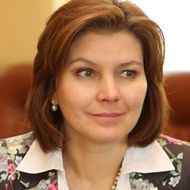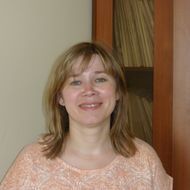Научный семинар АШ по социологическим наукам
1 апреля в 18:10 состоится научный семинар, на котором с докладами выступят Сайкот Гхош и Полина Белопашенцева
В 18.10. Сайкот Гхош выступит с докладом "The Aftermath of Shahbag Movement: Metamorphoses of State, Civil Society, and Social Movements in Bangladesh".
Social movements are dynamic and evolving entities, far from being static phenomena. They exhibit a distinctive lifecycle with various phases (Christiansen, 2011; Tarrow, 1983), and their evolution can, in certain circumstances, lead them to transform into entities resembling civil society. These movements are not singular events; instead, they evolve over time, responding to changing circumstances, societal attitudes, and governmental policies. The study examines the impact of the Shahbag Movement on contemporary Bangladeshi society, particularly focusing on its implications for the state, civil society, and subsequent social movements. Furthermore, it elucidates the emergence of the 2013 Shapla Square protests by Hefazat-e-Islam Bangladesh as a contrasting movement, highlighting the ensuing polarisation within Bangladeshi society. The paper argues that the increasingly authoritarian nature of the Bangladeshi state is an unwanted, nevertheless unavoidable consequence of the Shahbag movement. Methodologically, this research adopts a qualitative approach, drawing primarily from secondary sources and the researcher's first-hand experiences and engagements during the Shahbag Movement, employing ethnographic methods for a nuanced analysis.
Дискуссант - аспирант третьего года обучения Сергей Куликов.
Во второй части нашего семинара с 19.30. Артур Петросян представит доклад "All-cause excess mortality in Russia during the COVID-19 pandemic: a municipal-level analysis".
This study presents the first investigation of excess mortality during the COVID-19 pandemic in Russia using municipal-level statistics to focus on subregional areas. By employing a novel zoning approach across 509 microregions, we meticulously collected and cleansed data to ensure its reliability for robust excess mortality estimation at the subregional level. Our findings indicate that Russia experienced approximately 1.3 million excess deaths during the pandemic, marking a 30% increase in mortality, with significant regional disparities. The most substantial increases were noted in 2021, driven by the severe COVID-19 waves. A hierarchical gradient of mortality was observed, with rural areas and peripheral territories exhibiting higher excess deaths, exacerbated by limited healthcare access. Spatial analyses, including Moran's I and Getis-Ord hotspot analysis, revealed clustered patterns of excess mortality, especially in culturally and ethnically distinct rural areas. Future research directions include refining zoning and municipal typologies, improving excess mortality models, utilizing individual mortality data, and integrating epidemiological and socioeconomic factors to enhance the understanding of excess mortality patterns and inform policy measures for mitigating future public health crises.
Дискуссант - аспирант второго года обучения Михаил Максименко .
Семинар проходит онлайн, рабочий язык - английский.
Желающих принять участие в семинаре просим обращаться к Ивановой Виктории vivanova@hse.ru


